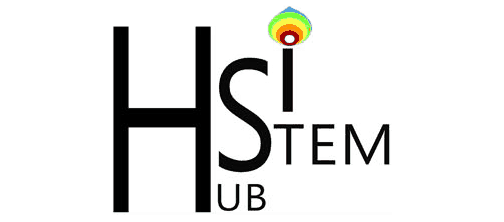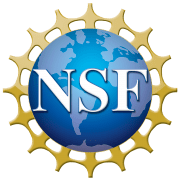Process Oriented Guided Inquiry Learning (POGIL)
Marcy Dubroff, M.A., Associate Director, POGIL Project
POGIL is an acronym for Process Oriented Guided Inquiry Learning, and is a research-informed, student-centered instructional approach that simultaneously develops discipline content mastery and key process skills (skills that are valued by employers.) POGIL takes place in a structured environment in which students work cooperatively in self-managed teams on carefully crafted guided inquiry activities. This inquiry-based environment has been shown to energize students and provide instructors with continuous feedback about what their students understand and misunderstand. Students quickly recognize that logical thinking and teamwork are as important as getting the correct answer, and this underscores the concept that learning is not a solitary task of memorization, but an interactive process of refining one’s understanding and developing skills that are important in both the classwork and in the workplace.
POGIL is based on research on how people learn best. Thus, POGIL activities are developed using the learning cycle [1,2]. POGIL activities and the facilitation of those activities incorporate models of learning from various research areas. One of these that is particularly relevant to POGIL is the Information Processing Model [3,4] that shows that long-term memory is affected by previous knowledge, misconceptions, likes and dislikes, among other things. In contrast to traditional classrooms, where much of the knowledge transfer one way, from instructor to pupil, in a POGIL classroom, the instructor listens to the beliefs, misconceptions, and previous knowledge of the students as they work through activities. This allows instructors to learn more about their students as learners and to better assess their needs. POGIL also emphasizes a “growth mindset” [5] in which students are encouraged to be metacognitive, and embraces the concept of cooperative learning [6]. These theoretical aspects of POGIL combine to form a powerful learning experience for students.
POGIL is not only based on educational research—The POGIL Project strongly encourages instructors to reflect on and assess their teaching as well. Over the years, The POGIL Project has collected a great deal of data related to the effectiveness of POGIL in the classroom to both teach student content knowledge and to develop process skills. Numerous studies indicate that students learn and retain content information better when the instructor uses POGIL pedagogy. This is true for both small amounts of information, such as a unit exam, and large amounts of information, such as an entire course [7,8]. The use of POGIL pedagogy also supports the achievement of underrepresented groups in STEM fields. There is an increase in A, B and C grades in these groups, decreasing the equity gap when POGIL activities are used in a course [9,7]. Students also report increases in their ability and confidence related to process skills after using POGIL for a significant amount of time in their courses. Self-assessments such as the Student Assessment of Learning Gains (SALG) have been used to show this impact [10, 11].
For more information about The POGIL Project and the POGIL pedagogy, as well as a calendar of upcoming events, please visit the POGIL website at www.pogil.org
[1] Karpus, K. & Their, H.D. (1967). A new look at elementary school science. Chicago. Rand McNally.
[2] Lawson, A.E. (1988). A better way to teach biology. The American Biology Teacher, 50(5), 266-278.
[3] Newell, A., & Simon, H.A. (1972). Human problem solving. Englewood Cliffs, N.J. Prentice-Hall.
[4] Johnstone, A.H. (1997). Chemistry teaching: Science or alchemy? Journal of Chemical Education 74(3), 262-268.
[5] Dweck, C.S. (2006). Mindset: The new psychology of success. New York, NY. Random House.
[6] Vygotsky, L.S. (1934/1986). Thought and language. (Rev. ed., A Kozulin, ed.) Cambridge, MA. MIT Press.
[7] Barthlow, M.J. & Watson, S.B. (2014). The effectiveness of process oriented guided inquiry learning to reduce alternative conceptions in secondary chemistry. School Science and Mathematics, 114(5). 246-55.
[8] Ruder, S.M. & Hunnicutt, S.S. (2008). POGIL in chemistry courses at a large urban university: A case study. In R.S. Moog & J.N. Spencer (eds.), Process-oriented guided inquiry learning (pp. 133-147). Washington, DC. American Chemical Society.
[9] Béneteau, C, Fox, G., Holcomb J., Xu, X, Lewis, J.E., Ramachandram, K., & Campbell S. (2016). Peer-led guided inquiry in calculus at the University of Southern Florida. Journal of Stem Education 17(2), 5-13.
[10] Myers,T., Monypenny, R., and Trevathan, J. (2012). Overcoming the glassy-eyed nod: An application of process-oriented guided inquiry learning techniques in information technology. Journal of Learning Design, 5(1), 12-22.
[11] Straumanis, A., & Simons, E.A. (2008). A multi-institutional assessment of the use of POGIL in organic chemistry. In R.S. Moog & J.N. Spencer (Eds.), Process-oriented guided inquiry learning, (pp. 226-239). Washington, D.C.; American Chemical Society.
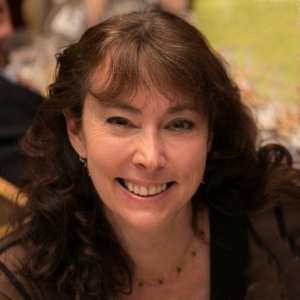 Marcy Dubroff is the associate director of The POGIL Project working with Project groups to develop and implement current and future plans. She has spent more than 30 years in higher education, working in various capacities including sports information, public relations, and as Director of the Clemente Course in the Humanities at Franklin & Marshall College. She earned her B.S. with distinction from Cornell University, where she majored in communications, and her M.A. in community-based education from Stevenson University. She also serves as the managing editor for Science Education and Civic Engagement: An International Journal, a publication of the National Center for Science and Civic Engagement
Marcy Dubroff is the associate director of The POGIL Project working with Project groups to develop and implement current and future plans. She has spent more than 30 years in higher education, working in various capacities including sports information, public relations, and as Director of the Clemente Course in the Humanities at Franklin & Marshall College. She earned her B.S. with distinction from Cornell University, where she majored in communications, and her M.A. in community-based education from Stevenson University. She also serves as the managing editor for Science Education and Civic Engagement: An International Journal, a publication of the National Center for Science and Civic Engagement
Improving Institutional Capacity through Grant Funding: Introducing Avanza at Dona Ana Community College (DACC)
Renay Scott, Ph.D., Vice President for Student Success, New Mexico State University, Las Cruces, NM
Avanza means to advance. It represents the institutional commitment of helping students advance in their education. The idea was captured in a grant application to the Kellogg Foundation and what is evolving is a changing of institutional culture acknowledging the institution’s responsibility to help students successfully advance toward their educational goal.
As a first-generation college freshman sitting in a lecture class, my college professor said when I look to my right and left that only one of us would graduate. This statement reinforced my fear that I didn’t belong in college. I graduated and subsequently completed three graduate degrees. However, this experience is why I’m committed to making college graduation attainable for all students. That is why, while I served as president at Dona Ana Community College (DACC), I sought funding to help create a culture of institutional responsibility for completion by partnering with community resources building on traditional support for students.
DACC, located in southwest New Mexico, serves a large percentage of first-generation, Hispanic students seeking skills, certificates and degrees. A large portion of these students are female with children, families and jobs. They possess strengths, while facing many barriers from managing a very busy life and other factors. To increase student success the institution needed to change.
Avanza is a philosophy and commitment to helping students advance and succeed. This commitment means providing access to college including traditional support services like career exploration, job attainment, career readiness, tutoring, and mentoring, and also means bringing community resources to students through strategic partnerships, making those resources available to students on campus.
DACC began engaging community partners to expand the scope of services offered to students on campus to include food assistance, childcare and wellness, emergency housing, and financial education. The strategy makes community support more accessible to students by offering them where students gather. This bundled services model creates a community of support on campus where the campus community has the opportunity to connect students to resource providers for one-on-one interactions as needs are identified. In addition, this approach also allows for large group workshops informing students of the services and how to access them while on campus.
The program builds institutional capacity as academic advisors, faculty, and staff learn about available resources for students, in turn providing holistic support during one-on-one interactions with students. Community partnerships are also fortified by Avanza staff, who visit classrooms to inform students when providers visit campus. Slowly the institution is creating a culture of shared responsibility for lifting up all.
Several findings from a 2021 spring focus group are noteworthy. Staff indicated that students are facing many challenges that were issues before the pandemic and COVID served to amplify those issues. DACC had to move to remote course delivery and Avanza adopted a remote delivery strategy, too. Both staff and students reported that remote delivery has benefits and helped some students feel college is more accessible when delivered online. The college also serves undocumented and international students who have been negatively impacted in two ways: 1) they have lost their jobs, but don’t qualify for support available to citizens 2) they have been unable to renew their status and that has caused additional stress. Avanza has been vital for student success before the pandemic, but the pandemic has elevated its relevance.
To learn more about Avanza resources visit: https://dacc.nmsu.edu/avanza/community/.
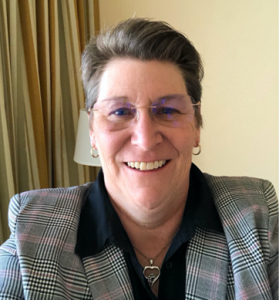
Dr. Renay M. Scott is Vice President of Student Success at New Mexico State University. She was the 9th president at Dona Ana Community College and the PI and author of the Kellogg Grant to support the work of Avanza.
Culturally Relevant Teaching and Learning
Alexis Racelis, Ph.D., Associate Professor, University of Texas Rio Grande Valley, Edinburg, TX
We are in a once-in-a-generation paradigm shift in the way we frame higher education, especially at minority serving institutions. This shift is unfolding in response to the societal impact of the worldwide pandemic of COVID-19, and the civil unrest and protests that extended across the nation and globe as a reckoning of systemic racism across our communities. As members of the higher education community, we each have borne witness to how these contexts have impacted our students, staff, and faculty differently– but predictably–by race, ethnicity, gender, and economic status. It is in this context that I write this column, as a call for each of us to reconsider how we acknowledge and tackle disparities and inequities in our privileged professions as teachers, administrators, researchers, and valued members of our respective communities. This is not an easy task, as it also requires a reinvention of the external incentives of our profession, but it always starts with serious introspection of what in our own lives has shaped us to be who we are and where we are. Through this self-reflection, we can begin to better appreciate how history, culture, and family have shaped who our students are and where they want to be. In our work at the University of Texas Rio Grande Valley, a regional Hispanic Serving Institution along the US-Mexico border in deep south Texas, faculty across the College of Sciences are asked to re-examine what it means to be a responsive teacher, impactful researcher, and servant leader at a Hispanic Serving Institution. Through guided workshops and community learning exchanges in partnership with the Museum of South Texas History, we immerse faculty to the history, community, diversity, and culture of the region. We challenge faculty to use this new understanding to reframe their pedagogy around a culturally relevant framework, one that dismantles deficit thinking, emphasizes cultural wealth, and develops a critical consciousness in both our students, and in themselves. Many of our faculty have reinvented their classes by offering gateway courses in a bilingual modality, where students are encouraged to ask questions/respond in English or Spanish, or bicultural courses that focuses on family-centered or culturally-relevant activities to explore foundational concepts, or community engaged courses that include elements of partnership, participatory learning and research, and action toward community-centered outcomes. More importantly, the faculty are coached toward developing a new teaching philosophy, one that acknowledges the profound responsibility and privilege they have to address inequities in STEM education, and that emphasizes new frameworks, modalities, and pedagogies that are more inclusive and more responsive to the students and communities we serve. For more information about our faculty development workshops and community learning exchanges, please visit www.utrgv.edu/CEO, or please connect with me at [email protected]. Our work will also be featured at the 4th Annual RGV STEM Education Conference, this year held virtually from February 25 – 27, 2021. Visit bit.ly/STEMED_Register to register today!
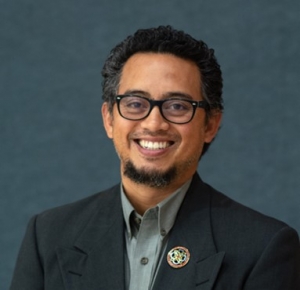 Dr. Alexis Racelis is an Associate Professor with a joint appointment in the Department of Biology and the School for Earth, Environmental, and Marine Science at the University of Texas Rio Grande Valley. Alex leads the Agroecology and Resilient Food Systems program focused on participatory research and education in restoration agriculture, agroecology, and natural resources conservation and management. He directs the Subtropical Soil Health Demonstration Conservation Innovation Trials a federally funded project which embeds farmer-driven questions into complex systems research regarding ecological, socio-economic, and agronomic implications of cover cropping and reduced tillage in south Texas. He also is co-director of the UTRGV Center for Sustainable Agriculture and Rural Advancement, which focuses on capacity building for local students, university and community partners, and farmers and producers through technical support, access to learning opportunities, and genuine community engagement. He writes this column as the Principal Investigator of the NSF-funded program #1832523 Building Capacity: Transforming Undergraduate Education in STEM Through Culturally Relevant Pedagogy and Community Engagement.
Dr. Alexis Racelis is an Associate Professor with a joint appointment in the Department of Biology and the School for Earth, Environmental, and Marine Science at the University of Texas Rio Grande Valley. Alex leads the Agroecology and Resilient Food Systems program focused on participatory research and education in restoration agriculture, agroecology, and natural resources conservation and management. He directs the Subtropical Soil Health Demonstration Conservation Innovation Trials a federally funded project which embeds farmer-driven questions into complex systems research regarding ecological, socio-economic, and agronomic implications of cover cropping and reduced tillage in south Texas. He also is co-director of the UTRGV Center for Sustainable Agriculture and Rural Advancement, which focuses on capacity building for local students, university and community partners, and farmers and producers through technical support, access to learning opportunities, and genuine community engagement. He writes this column as the Principal Investigator of the NSF-funded program #1832523 Building Capacity: Transforming Undergraduate Education in STEM Through Culturally Relevant Pedagogy and Community Engagement.
Activism, Advocacy, STEM and HSIs
Margie Vela, Ph.D., HSI STEM Hub Senior Program Manager, Doña Ana Community College, Las Cruces, NM
Activism, Advocacy, STEM, and HSIs
Activism and advocacy are critical to advancing the interests and priorities of the scientific enterprise and Hispanic Serving Institutions (HSI). The alignment of federal and state funding priorities and the interests of the STEM and HSI communities has an incredible impact on funding streams and mechanisms for supporting these communities independently and at their intersection. Participation in activism and advocacy takes many forms that range from a simple social media post to an organized meeting with state or federal representatives for Advocacy Days.
Activism is “the use of direct and noticeable action to achieve a result, usually a political or social one”[1]. The purpose of activism is to affect change, usually through:
- Increasing public awareness
- Mobilizing supporters
As STEM educators there is one organized national event for activists that prominently represents the interest of the STEM community: The March for Science. Many activists march these demonstrations across the country in support of the scientific enterprise. Another easy way to demonstrate activism is through mobilizing financial support through donations to organizations working in the advocacy space or through raising awareness about issues you care about using social media.
“Advocacy is the act of supporting, defending, or arguing for a specific cause or issue”[2]. The purpose of it is to affect change in various ways including, but not limited to:
- Raising decision-maker awareness
- Influencing policy change
- Increasing support
Working in STEM at HSIs and emerging HSIs presents unique opportunities for organizing and advocacy. Several existing organizations represent HSI interests and STEM interests at the federal level, advocating for change in policy and increased federal funding in both of these realms. The work of advocates can present itself in various ways, and anyone who has a desire to engage in advocacy work in the US has the opportunity to do so. Some of the most common actions advocates in STEM and higher education take are:
- Contact your members of Congress.
- Organize with your institution’s government relations office or administration for virtual or face-to-face Advocacy Days.
- Write an opinion editorial or letter to the editor for your local newspaper.
Your participation in activism and advocacy are important to the advancement of the scientific enterprise and the HSI community.
[1] Cambridge Dictionary. (2021). Activism. Retrieved from https://dictionary.cambridge.org/us/dictionary/english/activism
[2] Lobbyists4Good. (N.D.). Advocacy. Retrieved from https://www.lobbyists4good.org/advocacy
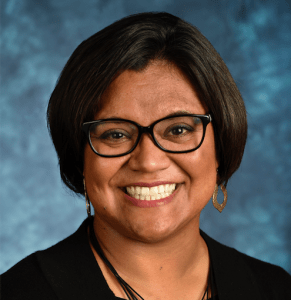 Dr. Margie Vela is the Senior Program Manager at the NSF HIS National STEM Resource Hub at New Mexico State University. She served NMSU as Student Regent from 2017-2019 and is a USDA NIFA Fellow as the PI of the Water and People Project.
Dr. Margie Vela is the Senior Program Manager at the NSF HIS National STEM Resource Hub at New Mexico State University. She served NMSU as Student Regent from 2017-2019 and is a USDA NIFA Fellow as the PI of the Water and People Project.
Join The HSI STEM Professionals Network!
Update Your Profile Today!
HSI STEM Hub News

\Grantsmanship Trainings Now Available
Preflight Grantsmanship Certification Series is a training for first-time grant writers as you begin formulating ideas and planning for writing your first grant. Click Here for More Information
New Resources for STEM Pedagogy – Click here for more information
STEMversity the Podcast hosted by President Monica Torres- Guest panelist, Dr. Alex Racelis from the University of Texas Rio Grande Valley, studies ecological interactions in the social, political, and economic contexts in which they occur. In this interview, Dr. Torres and Dr. Racelis discuss institutional capacity building for HSIs and the communities we serve, culturally relevant STEM pedagogy and practices, community-based research, teaching at Minority Serving Institutions, the important role of HSIs in the national and local landscapes, and the origin of the HSI designation. Click here for more information
HSI Community News
Access our community boards to share important opportunities and information with HSI STEM Professionals Network members. We have an HSI News Archive. You can access the information here. Submit your news to [email protected].
AAAS has new pieces of training available- Click here for more information.
The NSF HSI National STEM Resource Hub will host the Jumpstart Grantsmanship Webinar 2021 Spring Series:
Friday, March 5, 3 PM EST: Pre- and Post-Award Management: Tips for Principal Investigators and Sponsored Research Offices, Jannele Gosey, National Science Foundation, Grants Management Specialist for DUE and HRD
Friday, April 2, 3 PM EST
Friday, May 7, 3 PM EST
Friday, June 4, 3 PM EST:
Friday, July 9, 3 PM EST
Register on Zoom: https://us02web.zoom.us/webinar/register/WN_l_XuQnX2QnOJ0wgePzpu0Q
Faculty Funding Opportunity
The Data Science for Social Good (DSSG) program at the University of Washington eScience Institute is now accepting applications from faculty for the 2021 summer session through February 22nd. The DSSG summer program at the University of Washington eScience Institute brings together data scientists and domain researchers to work on focused, collaborative projects for societal benefit. Due to the COVID-19 pandemic, the 2021 program will be conducted remotely.
More information is available via the eScience Institute – Call for Proposals – 2021 Data Science for Social Good (washington.edu)
Newsletter Editors
MARGIE VELA
Margie Vela is a researcher, educator and public servant devoted to diversity, equity and inclusion (DEI) in higher education and STEM. She earned her Ph.D. in Water Science and Management from New Mexico State University (NMSU) in 2019 and served the State of New Mexico in public service as a Regent for the NMSU System from 2017-2019. She served as an intern at the National Science Foundation in 2015 and as a Farmer-to-Farmer USAID volunteer in 2018. Her career in DEI began at Fort Lee Garrison, where she served as Director for the HIRED! Program to prepare dependents of military personnel to enter college or the workforce. Her career in higher education began at a Historically Black University, in 2010, where she implemented a multi-million-dollar program focused on diversifying the STEM enterprise. Currently, Dr. Vela serves as Senior Project Manager for the NSF HSI National STEM Resource Hub working to implement a project aimed to bolster STEM at 539 Hispanic Serving Institutions in grantsmanship, multicultural awareness, institutional capacity building and STEM pedagogy: and facilitating partnerships across institutions and disciplines. Dr. Vela serves the NMSU Society for the Advancement of Chicanos/Hispanics and Native Americans in Science (SACNAS) Chapter as founding co-advisor and has served as a national panelist for SACNAS in DEI training as an alumnus of SACNAS Postdoctoral Leadership Institute. She recently earned a Certificate in DEI from Cornell University.
